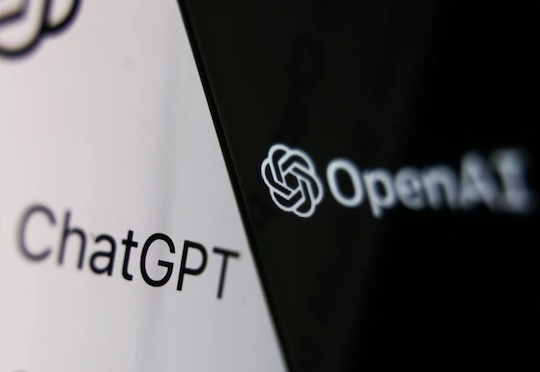OpenAI Hits 400 Million Weekly Users as Growth Accelerates

OpenAI has claimed a historic milestone of reaching 400 million active weekly users. The AI creator powering ChatGPT is showing rapid growth, with the last reported figure of 300 million users recorded in December 2024. OpenAI has so far withheld the number of paid subscribers to ChatGPT Plus or ChatGPT Pro services.
It looks like OpenAI is moving so fast without being put down by increasing competition. As the chief operating officer of the San Francisco-based technology company, Brad Lightcap said that the company had seen an increase of 400 million from 300 million by February-furthermore, an increase of 33% since December-as of February. The figures have never been shared before.
“The natural progression as it becomes more useful and more familiar to broader sets of people,” said Lightcap.
“People talk about it; they see the utility. They see their friends using it. There is an overall effect of people really wanting these tools, and seeing that these tools are really valuable. It takes a while for people to find use cases that best resonate with them,” Lightcap said in an interview.
ChatGPT is rapidly tapping business consumers. OpenAI recently had 2 million paying enterprise customers, whose number has doubled since September 2024, Lightcap pointed out. A lot of employees use ChatGPT personally and then recommend it to their businesses for wider adoption.
“We get a lot of benefits and a tail wind from the organic consumer adoption where people already have familiarity with the product,” he continued.
OpenAI’s developer APIs saw a traffic spike as well, with uses doubling over the last six months and the company’s “reasoning” model o3. Developers incorporate OpenAI technology into their applications, with its most notable enterprise customers comprising Uber, Morgan Stanley, Moderna, and T-Mobile.
Lightcap referred to this trend as similar to that of cloud service adoption by Amazon Web Services about 20 years back. While the consumer space is growing quickly because of its accessibility, enterprise adoption tends to have a slightly longer cycle.
“There’s a buying cycle there, and a learning process that goes into scaling an enterprise business,” said Lightcap. “AI is going to be like cloud services. It’s going to be something that you can’t run a business that ultimately is not really running on these very powerful models underneath the surface.
The DeepSeek Effect
Brought about by a new Chinese competitor DeepSeek, OpenAI is experiencing such growth and upheaval in tech markets last January owing to investment fears that the entity poses a threat to the profitability and dominance of U.S. AI companies. Losses were so huge that megacap tech companies suffered, with Nvidia falling by 17 percent in a single day and losing almost $600 billion in its entire market capitalization.
Later that week, OpenAI leveled the same charges against DeepSeek for illegally extracting its models through a distillation method. According to Lightcap, such new competition hasn’t changed OpenAI’s open-source, product roadmaps, or spending approaches.
“DeepSeek is symbolic of how much AI has entered the public consciousness in the mainstream-it would have been unfathomable two years ago,” he said. “This is a moment that shows the sheer power of these models, and how much people really care.”
Legal and Investment Challenges
Apart from DeepSeek entering the fray, OpenAI has its legal troubles to deal with. Co-founder Elon Musk is suing them for breach of contract over the transformation into a for-profit entity. Meanwhile, Microsoft has stashed billions into the company and SoftBank is closing in on a near $40 billion deal, which would give OpenAI a dizzying valuation of nearly $300 billion.
Musk, along with a group of investors, recently attempted to purchase the nonprofit’s assets for $97.4 billion. The proposal was, however, rejected by the OpenAI board. Board member Bret Taylor said, “The company is not for sale”.
“The numbers tell the story,” Lightcap said. “We try to be very transparent where we stand on all this. (Musk) is a competitor. He’s competing. It’s an unorthodox way of competing.”
By these figures, OpenAI wants to prove that it is strong and still in the forefront of all the competition in the AI industry.
Follow us on WhatsApp, Telegram, Twitter, and Facebook, or subscribe to our weekly newsletter to ensure you don’t miss out on any future updates. Send tips to editorial@techtrendsmedia.co.ke


